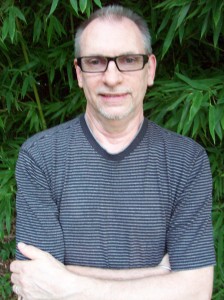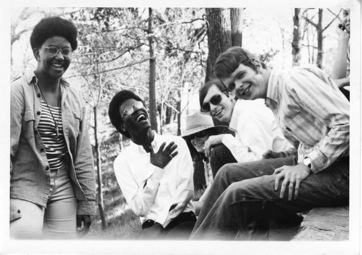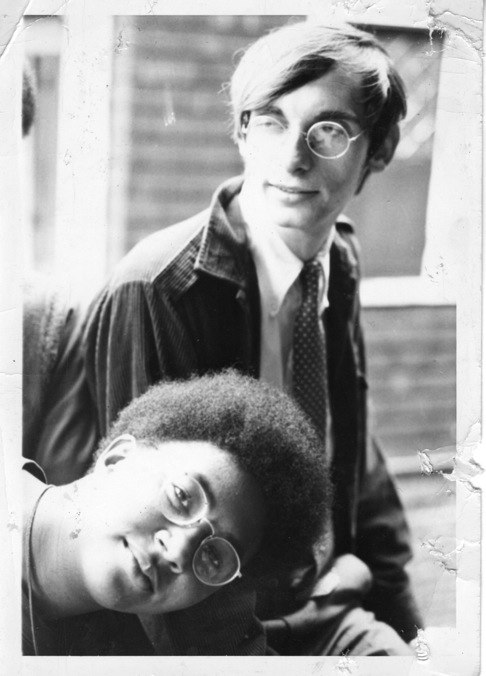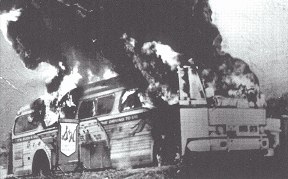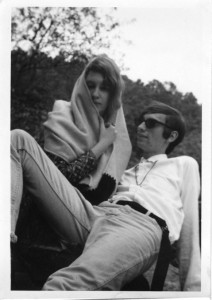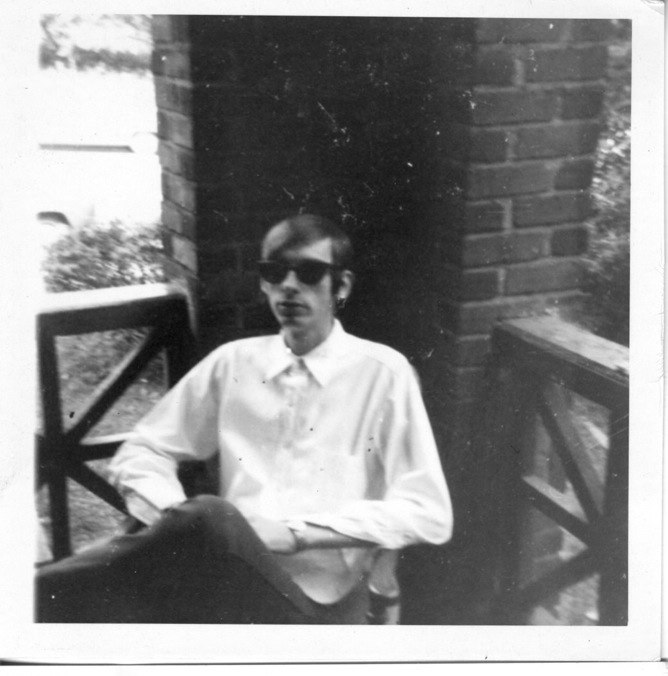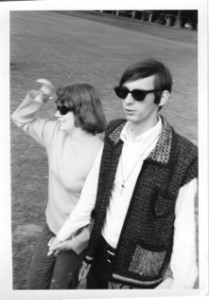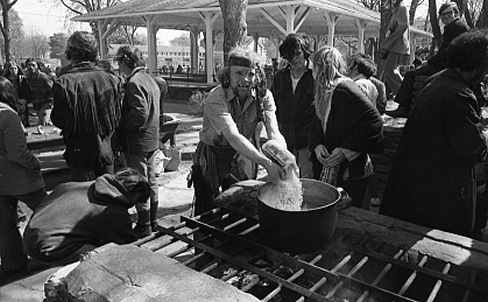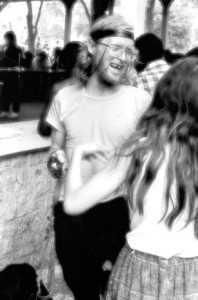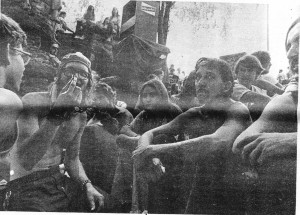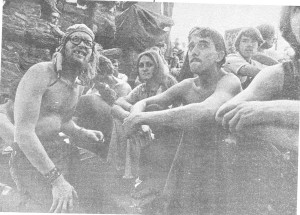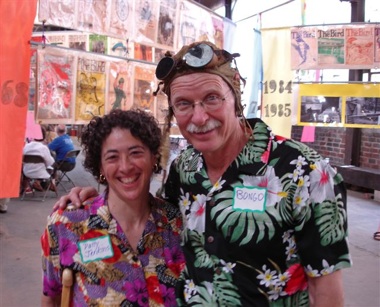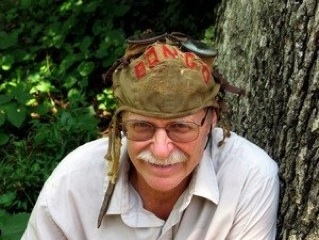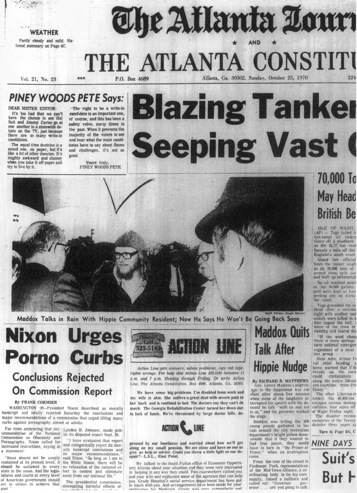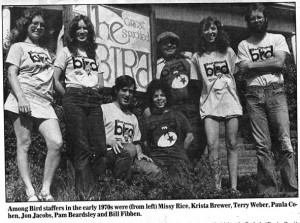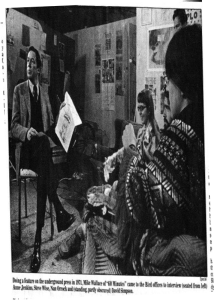Hi,
From 2 old Hippies who have both lived in The Dump — now living in San Diego — Miki Foote (now Miki Davis) and Jeannie Muse (now Jeannie Canaday) !!!
Bud Foote and I lived in The Dump (ground floor in what is now the back of the house) from 1961 to late 1964 – early 1965, when Gino Venzani bought it so the House of Eng Chinese restaurant that sat back-to-back with The Dump couldn’t buy it, tear it down, and turn it in to a parking lot.
Gino is also the one who had it declared a National Historical Site so no one could tear it down. He loved that old building. I was living there when Gino first renovated it. He kept it as apartments for quite some time.
Our son Joseph Nathaniel Foote was born in October 1964 while we were still living there. He now lives in Decatur.
Would you like some pictures of our family taken in The Dump when we lived there?
Hope you got some of Jim Bray’s Art for display. His studio was on the ground floor in the center in the rear. Bud Foote and he were great friends.
One night Jim was having a family fight, got drunk, came to The Dump, took all of his paintings out in to the yard, piled them up, poured paint thinner over them and set them on fire. A couple of the guys who lived there tried to put it out with the garden hose (not very successfully), Naomi Brown decided to get down on her knees and bow to the Great Fire Gods, and it was altogether quite a bonfire party until the fire brigade got there.
Darn near burned down The Dump that night !!
I could tell at LOT MORE stories … but most of them are unpublishable.
Can you put me in touch with Bill Fibben or any of the others. Only ones I know how to contact in Atlanta now are Van and Martha Hall.
By the way, my daughter Anna Foote (now Anna Copello) sent me the info on this. She was only a year old when we moved in to the Dump — she now lives in Atlanta near the Plaza Drug Store and will be at the “gathering” on July 26th.
Jeannie and I would give just about anything to be able to be there. We’ll be think of you all.
I’ll be sending out the info on this to some more of the old crew and I’m sure you all will be hearing from some more of them.
“Mother” Dave Braden — knew and loved him well. He lived in The Dump when we did.
Will confer with Jeannie and we’ll send you some info.
If I remember right, he was one of the driving forces of the underground coffee house “The Catacombs.” I remember it well, too …. all black walls, black-light artwork, great wooden platters of cheese and fruit.
So dark in there you couldn’t see your hand in front of your face. Seemed to be a forerunner of “Gothic”! It was in the basement of a house on 14th, between Peachtree and Piedmont, if my memory is still working right.
You really should include info on The Castle in your Web page. You familiar with it?
How about Baltimore Block. These were both very much a part of the 60s Hippie community.
Jeannie also has some great pictures — but they’re in her son’s house in Las Vegas. We’ll try and get them to you soon.
Sorry to hear about Bill Fibben. Many of the old originals have died:
Bud Foote
Dickie Espina (just last month), wife of Jeff Espina, now a sea captain out of Tampa, FL
Naomi Brown
Ernie Marrs
Jim Bray
(and many more I’m sure I’ve lost track of)
I’ve sent the message on to some of the old timers: Eleanor Walden, Bill Hoffman, Pat Sky. You may hear from them, too.
Love,
Miki
